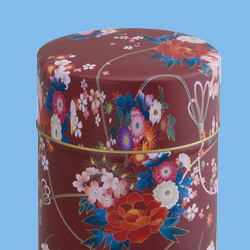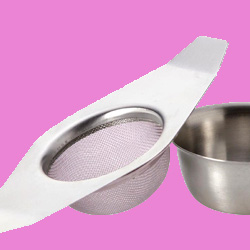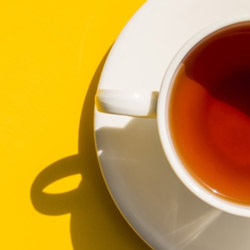Caffeine vs Theine

We received a question for a customer earlier today asking about the difference between caffeine and theine and it stumped us so after a little research this is what we came up with:
Caffeine and theine are two names for the same molecule, which is a naturally occurring stimulant found in tea, coffee, and other beverages. However, the terms caffeine and theine have been used historically to distinguish between the stimulant found in coffee and that found in tea. Today, the two terms are used interchangeably, but there are some slight differences between caffeine and theine.
Chemically, caffeine and theine are the same molecule: 1,3,7-trimethylxanthine. The difference between caffeine and theine lies in the source of the molecule. Caffeine is the term used to describe the molecule found in coffee, while theine is the term used to describe the same molecule found in tea.
Despite this historical distinction, there is no chemical difference between caffeine and theine. Both molecules have the same chemical structure and the same effects on the body. They are both stimulants that can increase alertness, improve cognitive performance, and reduce fatigue.
One difference between caffeine and theine lies in the way they are absorbed by the body. Caffeine from coffee is absorbed more quickly than theine from tea. This is because coffee contains a higher concentration of caffeine than tea, and the caffeine in coffee is more easily extracted during the brewing process. As a result, the effects of caffeine from coffee are felt more quickly than the effects of theine from tea.
Another difference between caffeine and theine lies in the way they are metabolized by the body. Caffeine is metabolized more slowly than theine, which means that the effects of caffeine can last longer than the effects of theine. This is why coffee can sometimes cause jitters or anxiety, while tea is often considered a more calming beverage.
There is also some evidence to suggest that the other compounds found in tea can interact with theine to modulate its effects. For example, the amino acid L-theanine, which is found in tea, has been shown to increase alpha brain waves and promote relaxation. This may help to counteract some of the stimulant effects of theine.
Overall, while there are some historical and cultural differences between caffeine and theine, they are chemically the same molecule and have the same effects on the body. The main difference lies in the way they are absorbed and metabolized, and the other compounds found in tea may also help to modulate the effects of theine. Regardless of whether you prefer coffee or tea, it's important to remember that both beverages contain caffeine/theine and should be consumed in moderation to avoid negative side effects.




